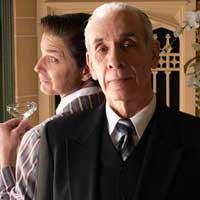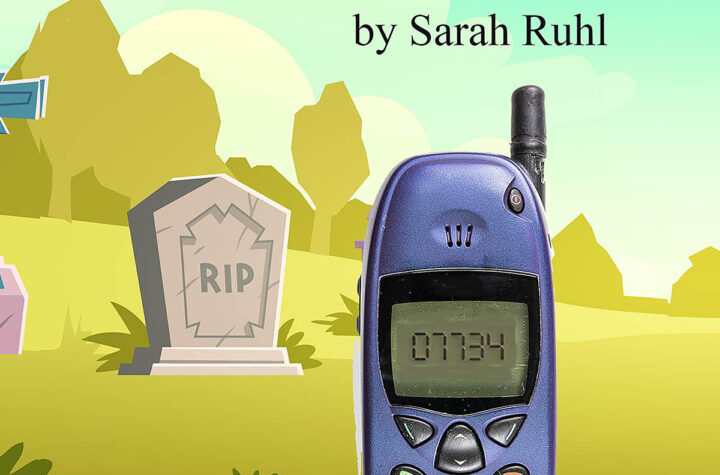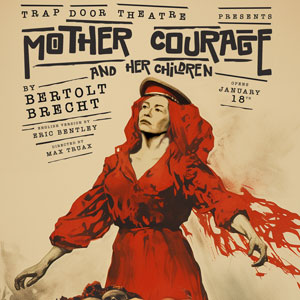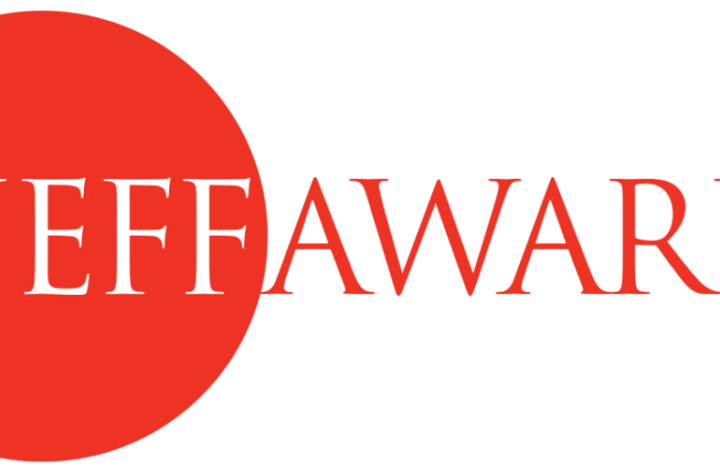
 Highly Recommended ****”I like it when a plan comes together.” Such is the phrase used by George Peppard, as Hannibal Smith, at the end of every TV episode of “The A-Team.” The same can be said about “Jeeves Saves the Day”, a delightful comedy currently being performed by First Folio Theatre. Written by Margaret Raether and based on characters by P.G. Wodehouse, this script introduces us to Bertie Wooster (Christian Gray) and his longstanding valet, confidante, and problem-solver Jeeves (Jim McCance)—and a considerable dilemma that Jeeves resolves neatly and tidily in the end, such that only he and his employer are the wiser.
Highly Recommended ****”I like it when a plan comes together.” Such is the phrase used by George Peppard, as Hannibal Smith, at the end of every TV episode of “The A-Team.” The same can be said about “Jeeves Saves the Day”, a delightful comedy currently being performed by First Folio Theatre. Written by Margaret Raether and based on characters by P.G. Wodehouse, this script introduces us to Bertie Wooster (Christian Gray) and his longstanding valet, confidante, and problem-solver Jeeves (Jim McCance)—and a considerable dilemma that Jeeves resolves neatly and tidily in the end, such that only he and his employer are the wiser.
The story takes place on a Tuesday and Wednesday, in August 1927, at a seaside cottage near Southampton, in the South of England.
Bertie accidentally engages himself to be married and doesn’t know how to get out of his commitment. But his demanding Aunt Agatha (Lucinda Johnston) is thrilled to learn of the marriage and excited to meet the bride’s father, the rigid and scientifically-minded Sir Roderick Glossop (Sean Sinitski), whom she arranges to meet for 4:00 tea at Bertie’s home the next day. In addition, Aunt Agatha arranges for her insufferable nephew Egbert Bakewell, Bertie’s first cousin (Dan Klarer), to stay overnight at his place before his ship departs the next day for South Africa. During Egbert’s and Bertie’s bachelor frolic on Tuesday night before his planned overseas voyage, Egbert falls madly in love with Red Hot Maisie Dawson, a chorus girl (Almanya Narula), who cannot stand the sight of him. As a result of this love-at-first-sight crush, Egbert has no intention of going onboard ship after all and plans to stay for the indefinite future in Bertie’s home as an uninvited guest. To pay his bills, Egbert goes on a scavenger hunt; if he can get all of the items on the list, he hopes to win a £50 prize. In the meantime, he constantly asks his first cousin to spot him for expenses and is driving his host crazy.
How can Bertie escape from this sticky wicket? More specifically, how can he best rid himself of his intended bride, dispense with the mooching and bobbling Egbert, get his overbearing aunt to quit her talk of marriage, and make the chorus girl (a friend of Bertie’s, no less) happy that Egbert is out of her life forever? He indubitably accomplishes all of this with the help of the ingenious but unassuming Jeeves. We infer from the onset that Jeeves’s deftness is unrivalled. So what does he do to tidy up this fine mess? Ah! That is why you need to see the performance!
The audience lights up every time we see Klarer take the stage as Egbert the buffoon. His antics—acrobatic and otherwise—are humorous and impressive, and his facial expressions a thrill to behold. In this spectacularly funny role, we see how he lollygags over Maisie and how willful, childish, and foolish he is. His emerald green and white argyle costume, nicely designed by Rachel Lambert, adds to the silliness, as it makes him look like a cross between an Irish golf caddy and the Joker in a card deck. Then there is the cool and collected Jeeves, the serious and deliberate counterweight in both demeanor and poundage to Egbert. He plays the straight man throughout, although his deliberate mixing up of the words of “glutamous”, “glutinous”, and “gluteus” is funny in its own way. And Bertie unwittingly eggs Eggie on.
Set design is absolutely beautiful: genuine and airy at the same time. Credit must go to Angela Weber Miller for her fine work. Also well done is the lighting design by Richard Norwood. The introductions of Aunt Agatha and Maisie are nicely handled via lighting from behind screens. The sound design by Christopher Kriz is definitely on target.
There is a minor fault when Egbert goes hunting and kills a goose. The wrong stuffed goose is used in the show. Egbert kills a Canada goose, but there are no Canada geese in England! Despite the fact that the storyline is all meant in good humor, the props master(s) ought to get a more authentic bird. That said, some of the other props are great, like the large canary cage, strapped to Egbert’s back and the indoor tree….
A very minor fault occurred when Aunt Agatha’s right earring accidentally fell on stage; Bertie picked it up and handed it to her; and then was her irrepressible giggle that was not supposed to be a part of the scene.
The biggest fault, however, concerns an issue that combines acting and stage direction. While it is essential to play to the crowd in a comedy, there are far too many instances when the actors face the audience directly and say their lines to us (or through us) rather than to each other directly.
In acting, one of the basics is having convincing body language. Part of this has to do with (what is called) the five points of the body: head, left and right shoulders, and left and right hips. At least one of the five points on the body needs to be obscured or rotated away from our view in order for the actors to seem natural on stage. When all five points are constantly and simultaneously shown to the audience, it makes the characters appear stiff and flat, and as a result, the performance may seem forced. This flatness makes the actors seem nervous and amateurish, as if they not fully concentrating on their interaction and dialogue. It was mostly in the first act where this problem existed, especially with Bertie and his conversations with Jeeves and Aunt Agatha. The situation improved in the second act when there was more action—and especially when the settee was rotated to fit around the séance table, so that it was no longer parallel to the front edge of the stage. This placement of the furniture affected how the characters interfaced with each other; making for a much more normal and authentic scene.
Yet a very good script and an enjoyable presentation make up for these various flaws. This show is a rarity with clean, good humor, where nobody dies and nobody swears—and it’s clearly watchable. It has a clever plot but not an overly cumbersome one. It is a good evening’s worth of entertainment.
Directed by Joe Foust, the world premiere of “Jeeves Saves the Day” by First Folio Theatre is playing through March 1, 2020, at the Mayslake Peabody Estate, 1717 31st St, Oak Brook, Illinois.
Performance schedule:
 Wednesdays and Fridays – 8:00 p.m.
Wednesdays and Fridays – 8:00 p.m.
Thursdays – 3:00 p.m.
Saturdays – 4:00 p.m. and 8:00 p.m.
Sundays – 3:00 p.m.
Tickets are:
Adult
$34 Wednesdays and Thursdays
$44 Fridays, Saturdays, and Sundays
Senior (+65) and Student
$29 Wednesdays and Thursdays
$39 Fridays, Saturdays, and Sundays
Prices include a $1.10 per ticket facilities fee for the Mayslake Peabody Estate.
Group rates are available. Contact 630-986-8067 or firstfolio@firstfolio.org
Tickets are available for purchase by phone at 630-986-8067, or online at
https://app.arts-people.com/index.php?ticketing=folio
or at the Box Office Monday – Saturday, 10:00 a.m. – 4:00 p.m., and two hours prior to each performance. The Box Office is closed on all major holidays.
(Note: Seats are assigned by the box office on the day of the performance, with priority being given to donors, subscribers, and those with special seating requirements. Following those assignments, seats are assigned in the order of purchase, with care being taken to make sure that all members of a given party are seated together.)
Free parking is available on the estate grounds. For directions, go to: https://firstfolio.org/plan-visit/directions/
For general information, call 630-986-8067 or go to: https://firstfolio.org/contact/
To see what others are saying, visit www.theatreinchicago.com, go to Review Round-Up and click at “Jeeves Saves The Day”.






More Stories
“Dead Man’s Cell Phone”
“the distrikt of lake michigun”
“Mother Courage and Her Children” reviewed by Jacob Davis